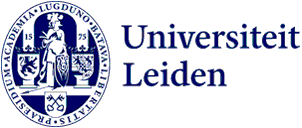
Leiden University and University of Edinburgh to deepen collaboration
Joint masters and PhD programmes. A research and teaching hub. A delegation from the University of Edinburgh recently visited Leiden University to deepen their collaboration. What makes Edinburgh such an attractive partner? Four questions to Erwin Muller, Chair of Campus The Hague.
The Scottish delegation stayed for three days. What was the aim of the visit?
‘We are exploring how our universities can intensify their collaboration. We already work together in various fields and disciplines, such as astronomy, medicine, African Studies, and science and technology. We also have joint PhD programmes. Medical PhD candidates are taking a Scottish-Leiden PhD programme where they do their research partly in Leiden and partly in Edinburgh. We are going to expand such collaborations to other disciplines including law, languages and cultures, public administration, security and international relations. We also want to develop innovative master’s programmes where students do part of their programme at the other university.’
What makes this Scottish university an attractive partner for us?
‘In terms of breadth and research themes, the University of Edinburgh is similar to Leiden University. But we each have our own specialisations and can learn from each other. Edinburgh has its Edinburgh Futures Institute, for example: a fantastic institute where they conduct research into the big challenges of our time, such as climate change and migration. We do that too but they are a bit further in their interdisciplinary approach. More than in the Netherlands, the British government is firmly encouraging this kind of research into societal issues.’
-
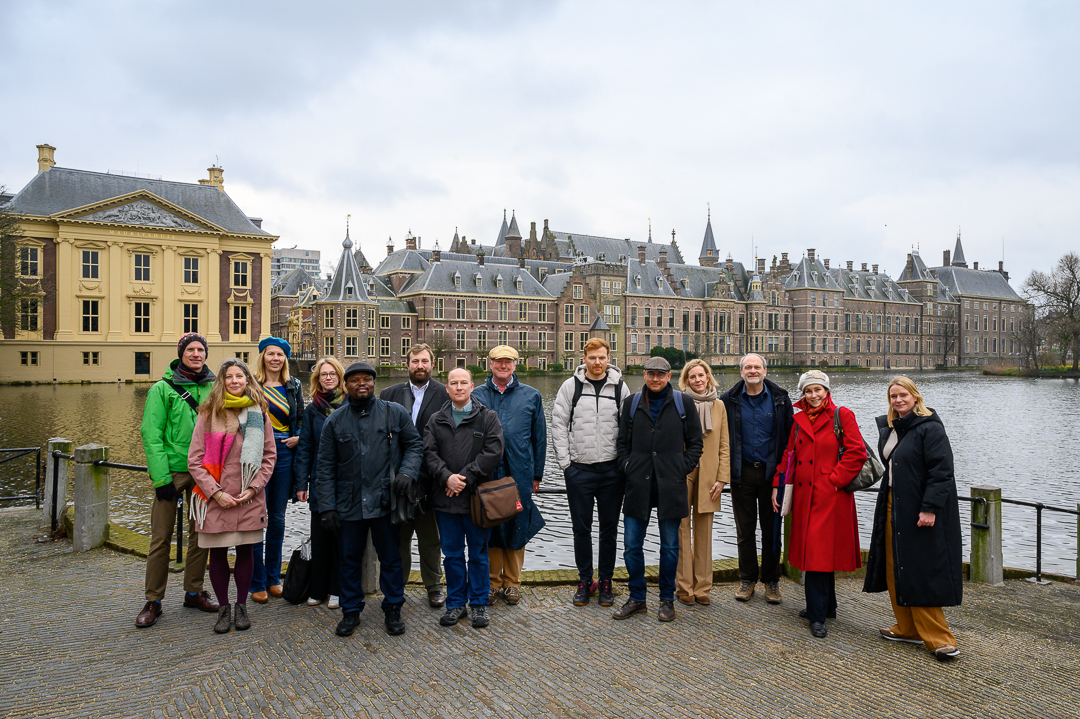
The Edinburgh delegation was given a tour of The Hague. -
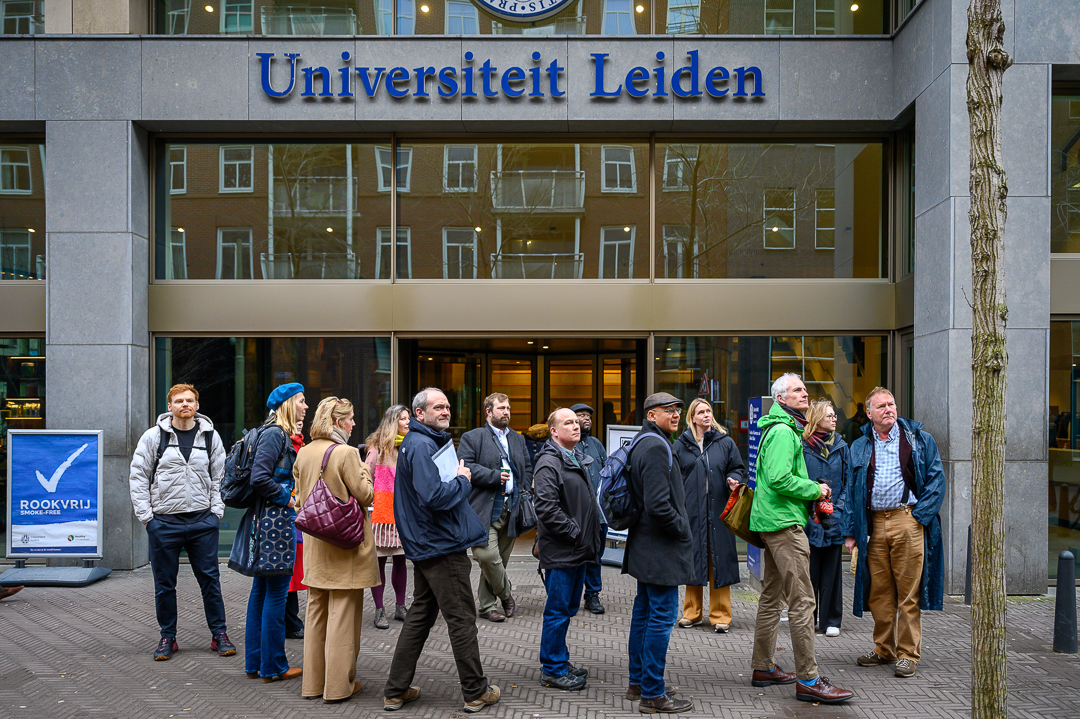
-
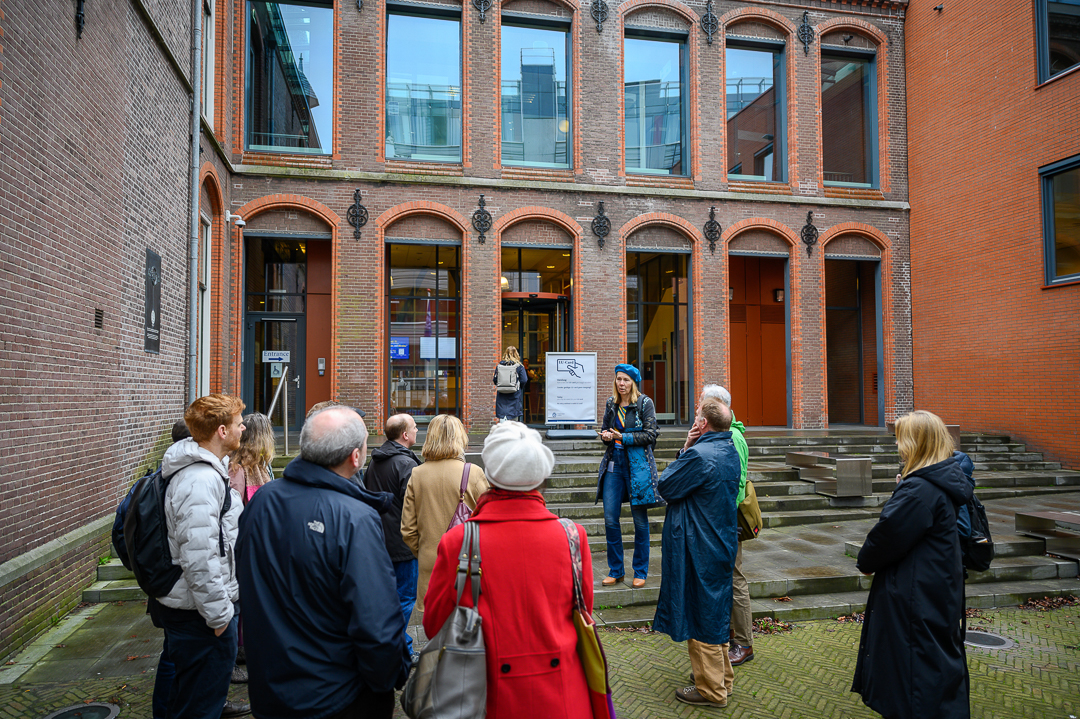
-
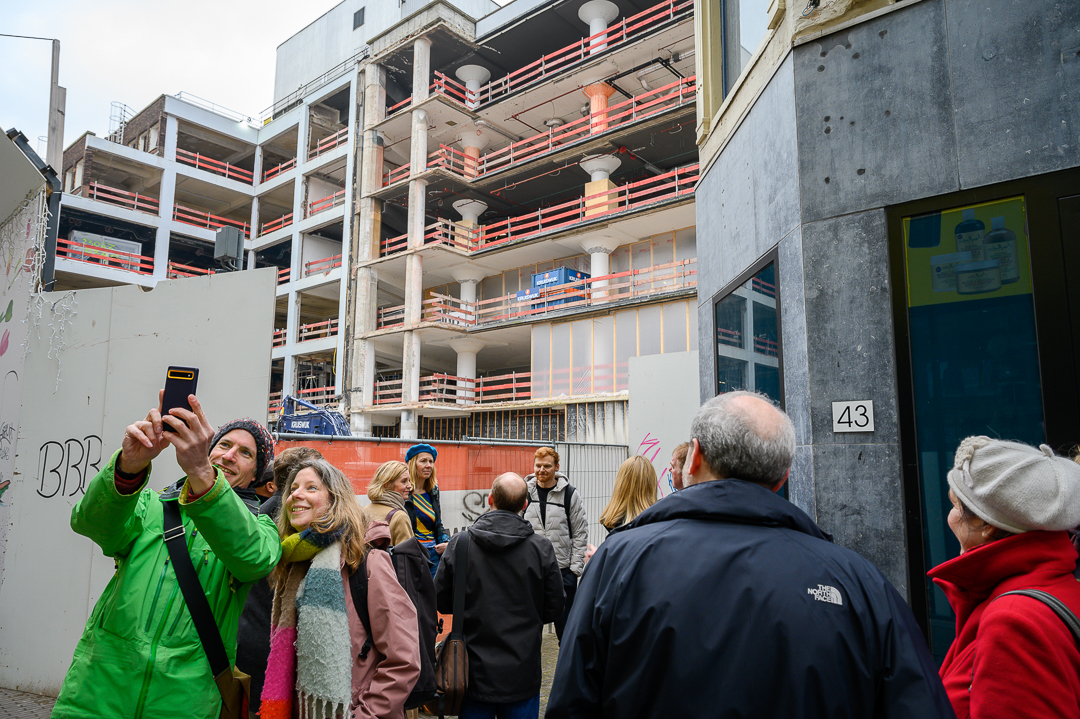
And what does Edinburgh stand to gain from us?
‘We have additional expertise in various disciplines that is very interesting for them, such as innovative forms of teaching, including challenge-based learning, and a more empirical focus within our law faculty. And with our location in The Hague, we have access to various international peace and justice organisations. Since Brexit, there have been all sorts of restrictions and then it helps to be able to make lasting bilateral agreements with our university. That gives students and staff opportunities to go on research and teaching exchanges. Through us, Edinburgh has better access to the network of universities on the European mainland and through them, we have more contact with other top British universities and Edinburgh’s global network.’
What is the next step?
‘A joint task force is fleshing out the plans. A delegation will visit again on 10 June, this time with Peter Mathieson, the Principal of the University of Edinburgh, for the official launch of this partnership. And a Leiden delegation will visit Edinburgh this autumn. We are setting up the Global Futures Hub where we will work together on research and teaching on societal and scientific issues. The hub will also be a point of contact for community partners in the city and beyond. We want to bring together people with different perspectives. This will make it even easier for us to address the challenges of our time in our research and teaching, something that is desperately needed.’
Text: Linda van Putten
Photo of Old College in Edinburgh: Billy Wilson
